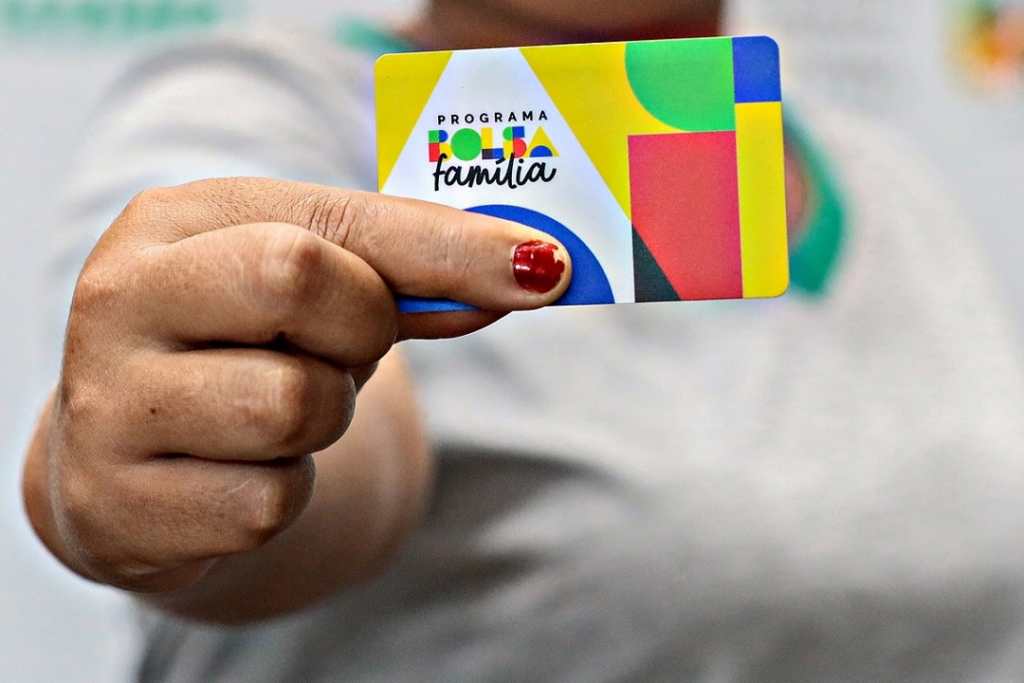Advertisement
In the current scenario, where social inequality is a reality that affects millions of Brazilians, social programs play a crucial role in promoting inclusion and fighting poverty. In the Federal District, it's no different. State and municipal governments have implemented a series of initiatives aimed at social assistance and protection, with the aim of offering financial, food and educational support to those who need it most.
What are the Federal District's social programs?
If you are a resident of the Federal District and are looking for financial support or social assistance, it is important to be aware of the social programs available. The Federal District, like other regions of Brazil, offers a variety of social programs designed to help those in vulnerable situations or who need assistance in different areas of life.
Advertisement
1. Bolsa Família
Bolsa Família is one of Brazil's most important and comprehensive social programs, extending its protection network to various regions of the country, including the Federal District. Created by the Federal Government in 2003, Bolsa Família's main objective is to promote immediate poverty alleviation and social inclusion through the direct transfer of income to families in situations of extreme poverty and poverty.
In the Federal District, Bolsa Família plays a fundamental role in guaranteeing access to basic rights such as food, health and education for thousands of families in conditions of socio-economic vulnerability. Through the program, beneficiary families receive monthly financial aid, the amount of which varies according to family composition and per capita income.
Advertisement

To register for Bolsa Família, families must meet the criteria set by the federal government, including monthly income per person, which must be up to R$ 89.00 for extreme poverty and from R$ 89.01 to R$ 178.00 for poverty. In addition, families must include children and adolescents aged 0 to 17, pregnant women and nursing mothers.
It is important to note that Bolsa Família is not just a cash transfer, but also an instrument of social inclusion, which seeks to promote beneficiary families' access to essential services such as health and education. To this end, the program provides for the monitoring of health and education conditionalities, ensuring that children and adolescents are enrolled in school and have their vaccinations up to date.
2. Income Supplement Program (PCR)
In the Federal District, the Income Complementation Program (PCR) is a government initiative aimed at assisting families in situations of social vulnerability. Its main objective is to offer additional financial support to families facing economic difficulties, helping to improve living conditions and promote social inclusion.
Like other social programs, the PCR is aimed especially at families living in poverty and extreme poverty, whose financial conditions are insufficient to guarantee access to basic needs such as food, housing and health. By supplementing income, the program aims to provide greater financial stability and reduce the vulnerability of these families.
The benefit offered by the PCR is granted on a monthly basis and its value varies according to family composition and per capita income. To register for the program, interested families should go to the agencies responsible for social assistance in the Federal District, such as the Social Assistance Reference Centers (CRAS) or the Social Development Secretariats.
3. Minimum Income Program
In the Federal District, the Minimum Income Program is a local government initiative aimed at assisting families living in extreme poverty. The main objective of this program is to guarantee minimum financial support for these families, helping to reduce social inequality and combat poverty.
The Minimum Income Program offers a monthly financial benefit to participating families, the amount of which can vary according to criteria established by the competent authorities. This benefit aims to supplement families' income and guarantee access to basic resources such as food, housing and health.
To register for the Minimum Income Program, interested families must meet the requirements established by the local authorities, which generally include income criteria, family composition and vulnerability. Applications and information about the program can be obtained from the agencies responsible for social assistance in the Federal District, such as the Social Assistance Reference Centers (CRAS) or the Social Development Secretariats.
4. Full Plate Card
In the Federal District, the Prato Cheio (Full Plate) Card is an essential local government initiative aimed at promoting food security and combating hunger among vulnerable families. This program represents an important support instrument, guaranteeing access to basic foodstuffs for those who face economic difficulties and find it difficult to ensure adequate nutrition.
The Prato Cheio Card works through a direct transfer system, providing a monthly financial benefit to participating families. This benefit is loaded onto a specific magnetic card, which can be used to buy food in accredited commercial establishments.
The main objective of the Prato Cheio Card is to offer beneficiary families the opportunity to choose and purchase the food that best meets their nutritional needs and preferences. In this way, the program not only guarantees access to food, but also promotes the dignity and autonomy of families, allowing them to exercise their basic right to food in a dignified and independent manner.
To register for the Prato Cheio Card, interested families must meet the criteria established by the local authorities, which generally include information on income, family composition and vulnerability. Applications and information about the program can be obtained from the agencies responsible for social assistance in the Federal District.
In addition to providing financial support for the purchase of food, the Prato Cheio Card can also be accompanied by food guidance and education actions, aimed at promoting healthy eating habits and the conscious use of available resources.
5. Youth Income Program
The Youth Income Program is an innovative initiative of the Federal District Government aimed at promoting the social and economic inclusion of young people in vulnerable situations. Recognizing the challenges faced by young people in the search for employment and income opportunities, this program aims to provide financial support and training opportunities for young people between the ages of 15 and 29.
The main objective of the Youth Income Program is to provide young participants with monthly financial aid, which serves as an incentive for them to enter the job market or stay in school. At the same time, the program offers training and professional qualification activities, aimed at increasing the skills and competencies of young people to face the challenges of the contemporary world.
The benefit offered by the Youth Income Program is specifically aimed at young people in situations of socio-economic vulnerability, who often face additional difficulties in finding employment or completing their formal education. The financial support provided by the program can represent significant relief for these young people and their families, helping to guarantee their livelihoods while they seek opportunities for personal growth and development.
In addition to financial support, the Youth Income Program also offers access to guidance and monitoring services, which can include psychosocial support, vocational guidance and referrals to other government initiatives to support youth.
By training young people and offering them real opportunities for personal and professional growth, the Youth Income Program not only contributes to reducing social inequality, but also to strengthening the local economy and the sustainable development of the Federal District. Investing in young people is investing in the future, and the Youth Income Program represents an important step towards building a fairer and more inclusive society for all.
Who is entitled?
The Federal District's social programs are designed to offer assistance and support to those who find themselves in a situation of socio-economic vulnerability. Although the specific criteria may vary according to each program, there are generally some common requirements that determine who is entitled to participate in these initiatives.
Income criteria
Many social programs take per capita income as one of the main criteria for determining the eligibility of beneficiaries. Families with incomes below a certain threshold, usually set by the competent authorities, may be entitled to participate in the programs.
- Per Capita Income: Per capita income is calculated by dividing a family's total income by the number of people living in the same household. Social programs can establish different per capita income ranges to determine the eligibility of beneficiaries. Generally, families with a per capita income below a certain threshold have priority to participate in the programs.
- Income Limit: Social programs can set a maximum per capita income limit to determine who is entitled to receive benefits. This limit varies according to the program and can be adjusted periodically to reflect the economic and social conditions of the population served.
- Socio-economic classification: In addition to the absolute value of per capita income, social programs can also take into account other aspects of a family's socio-economic situation, such as housing, health and education expenses, to determine their eligibility. This allows for a more comprehensive assessment of families' needs and a more equitable distribution of benefits.
Family composition
Some social programs prioritize families with children, adolescents, pregnant women, nursing mothers or people with disabilities. This is because these groups are considered more vulnerable and may need additional assistance.
- Prioritization of Vulnerable Groups: Many social programs prioritize families that have members in situations of greater vulnerability, such as children, adolescents, pregnant women, nursing mothers, people with disabilities or the elderly. This is because these groups often need special care and have greater challenges in guaranteeing their livelihoods and access to basic services.
- Attention to Specific Needs: Family composition is also taken into account to identify the specific needs of each family. For example, a family with school-age children may need support to ensure their children's education, while a family with elderly people may need assistance with health care and adequate nutrition.
- Inclusion of All Members: It is important that social programs consider all family members when assessing eligibility for benefits. This ensures that no member is left out and that everyone's needs are adequately met.
Situation of Vulnerability
In addition to the criteria of income and family composition, social programs can also take into account other aspects of the socio-economic situation of families, such as unemployment, poor housing, lack of access to basic services, among others.
- Determining Family Needs: Family composition is crucial to understanding the specific needs of each family. For example, a single-parent family headed by a single mother may face different challenges than a traditional nuclear family. Social programs can take these differences into account to provide personalized assistance.
- Protection of Vulnerable Groups: Many social programs prioritize vulnerable groups within the family composition, such as children, the elderly, pregnant women and people with disabilities. This is because these family members often need special care and have greater difficulties in providing for themselves.
- Inclusion of All Members: It is important that all family members are considered when assessing eligibility for social programs. This ensures that no one is left behind and that everyone's needs are adequately met.
- Family Income Assessment: Family composition also influences the assessment of total family income. For example, families with more members who contribute financially may have a higher per capita income, which can affect their eligibility for certain programs.

Age and Other Specific Criteria
Some programs, such as the Youth Income Program, may establish specific age criteria for beneficiaries. Other programs may have additional requirements, such as participation in certain educational or training activities.
It's important to note that eligibility for the Federal District's social programs is determined by the competent authorities, who assess each case individually. For this reason, it is essential that interested families seek detailed information about the programs and eligibility criteria, usually available from the agencies responsible for social assistance in the Federal District, such as the Social Assistance Reference Centers (CRAS) or the Social Development Secretariats.
See if you are entitled to one of the DF's social programs
The Federal District's social programs play a fundamental role in promoting social inclusion and combating inequality, offering financial support and assistance to those who need it most.
If you find yourself in a vulnerable situation, don't hesitate to find out about the programs available and see if you are entitled to any kind of benefit that can help you overcome difficulties and improve your quality of life.
See also: Can people who work with a formal contract receive Bolsa Família?
March 31, 2024

She has a degree in Languages - Portuguese/English, and is the creator of the Escritora de Sucesso website. As a writer, she seeks to expand everyone's knowledge with relevant information on various subjects. At SoMuchToSayToday, she brings news and content ranging from entertainment to the country's economic situation.



